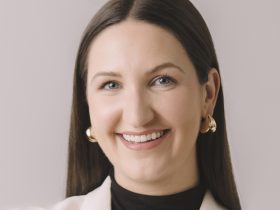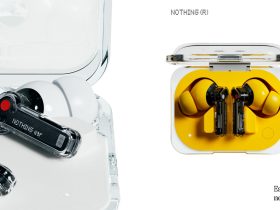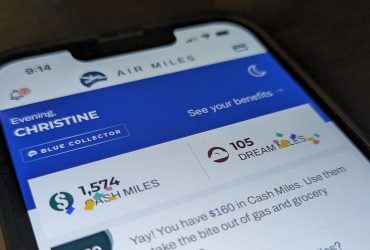On April 3, 1973, Dr. Martin Cooper, credited as being the inventor of the cell phone, made the very first call on a mobile device. He was standing on a New York City corner where he dialed the number into the oversized phone, placed it to his ear, and spoke.
Working as an engineer at Motorola at the time, he fittingly made the first call to Joel Engel, head of Bell Laboratories in a perfect “I beat you to the punch” and “look what I can do moment.” He declared that he was calling from a cell phone, but a real one. In that moment, Dr. Cooper made history and became forever linked with the evolution of the cell phone.
It’s amazing to think how far we have come since the brick phone half a century ago. That phone weighed close to two pounds, only offered a half hour of talk time, took 10 hours to charge, and required a massive six-inch antenna protruding from the top.
Cooper is now 94 but he still has a lot to say about the mobile phone industry. He told sources like BBC that he believes artificial intelligence marks the future of the cell phone. He told me the same when we spoke several years ago along with his feelings on how phones should, in future, focus on much more than communication, including health and even social and educational issues (little did he know back then how big of a role technology would play in these very spaces due to COVID-19 lockdowns). This, he has said, is what will make the phone truly revolutionary.
Looking back at an interview I had with Dr. Cooper years ago, it seems many of his viewpoints remain the same.
To mark the anniversary, here are some excerpts of my chats with the humble, gracious, and intelligent man back in 2013.
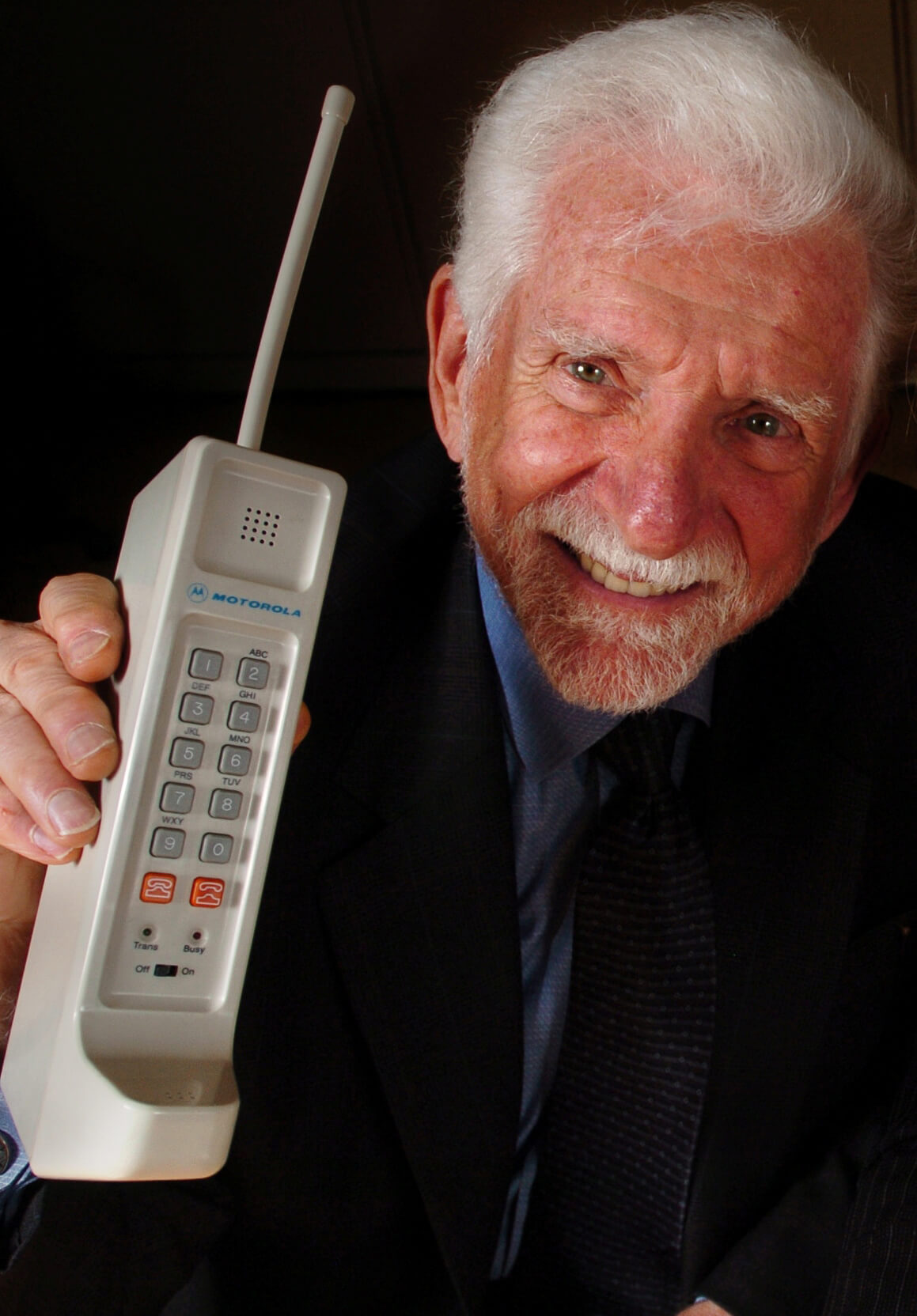
What was your ultimate goal with the mobile phone when you first launched it? Did you foresee it becoming what it has today?
Our goal was much more mundane than that. Our goal was to stop AT&T from creating a monopoly in the cell phones. And not only that, but a monopoly in car telephones. They invented cellular as far back as 1947. And now they wanted to have a monopoly; only one carrier. We thought the world was ready for the freedom you get in having personal communications. And we sure didn’t want to get put out of business. We actually knew that someday everyone would have a personal phone. We told a story that some day when you were born, you would be assigned a telephone number, and if you didn’t answer the call, you would die.
Did you see that happening as quickly as it has?
(Laughs). No, I did not think it would happen in my lifetime.
What would you say are the biggest issues facing the mobile industry?
We started a revolution in creating the personal phone because we changed the nature of a phone call to calling a location; that’s what you used to do. When you called somewhere, you were calling a place and you didn’t know who was going to answer. Now when you call, you’re calling a person, and you expect them to answer.
The freedom that comes from that; I don’t think there’s ever been a technology that’s been so pervasive. Where we have six billion cell phones in a world of seven billion people. But the next revolution hasn’t happened yet. Yes, people get their e-mail and watch movies. But none of those things are really profound. But there are some profound revolutions that are coming. When you are connected like that, there are things you can do that have never been conceived of before.
There are three revolutions that I think are going to be most profound. First, it’s going to be in health care because now, when you’re connected like that, your body can be monitored continuously. We’ve known how to do that for many years. We can put a patch on your body that will measure how much fluid there is in your lungs, and we can anticipate congestive heart failure. And if you can anticipate it, if you can tell somebody who is starting to accumulate fluid in his lungs, 10 hours or six hours before it becomes dangerous and treat them; it might just be as easy as taking a pill and you stop someone from having a heart attack.
And this is a product that exists now today. Where you put this patch on, the patch has a little radio in it that talks to your cell phone, talks to a computer that monitors you, and you’re now protected. And there’s a little device also available today that measures your calorie intake and out-go.
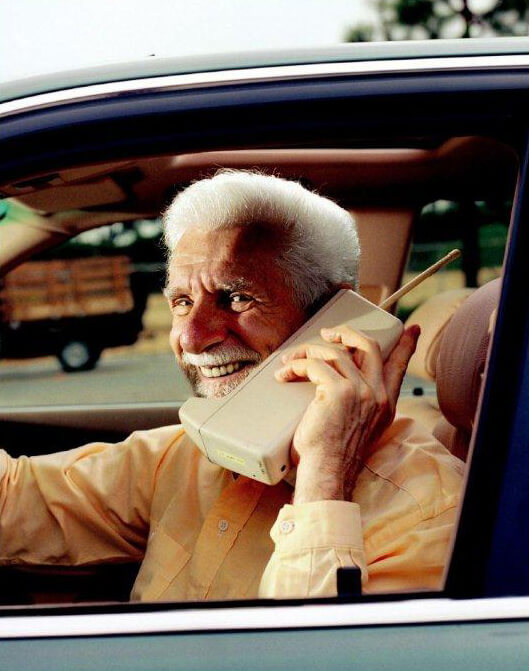
I don’t know if this is true in Canada but it’s certainly true in the U.S., where we’ve got a real weight problem. Excess weight means people are obese, and they get diabetes and other kinds of things. So one thing you can do is keep reminding people that they’re taking in more calories than they’re burning up. And hopefully the next time you reach for a dessert, your little computer tells you ah, ah, ah don’t eat that. So, each of these little things is minor, but when you put them all together, it turns out that every disease is actionably preventable.
What does that mean? It means if you can sense that your body is starting to become diseased; your body is loaded with all kinds of viruses and bacteria and poisons; but your immune system kind of takes care of these things. If you can sense when something is getting out of control and can stop it before it becomes a disease, we could someday eliminate the whole concept of someone having a disease. So that’s the first potential revolution. I’m not suggesting that’s the only thing that’s going to fix healthcare. But it’s certainly going to have a profound effect.
Education, which started already, is going to be revolutionized. The whole idea of a classroom is becoming obsolete. I got a different award a month ago [in 2014], and someone else got an award who created a new university. They tell me if they try to have a professor lecture, the students sit there and surf their iPads, and can find out more about the subject than the professor does, in real time. So what’s the purpose of that? You’re better off somehow getting students to do their studying and information gathering on their own, because they can do that any time of the day, wherever they are. We have connected iPads. I shouldn’t say iPads, connected pads. And then you have classroom time, and that’s for the teachers to share their wisdom, provide guidance, to focus them. I think that is going to cause a revolution in education.
And the most profound one, it’s one that started with the cell phone 30 years ago, and that has to do with productivity. The fact that you are doing business 24 hours a day, wherever you are, has made a huge difference already just with voice and texting. It was so easy for you and I to set up this phone call because I knew that wherever I was, you could reach me. And when you extrapolate that to every aspect of a business, administration, the world is going to be so much more productive.
We now have the opportunity to make real progress on the biggest problem in the world today, which is poverty. The biggest problem is the difference between the haves and the have nots. So that is going to take a couple of generations because we have a lot of ingrained habits.
But little by little, we are becoming a more productive society, which means there is more wealth to be shared among the people. So when you combine all of those things, we end up with a world in the future that is healthier, smarter, and richer. And I think the cell phone has made an important impact on all these three…
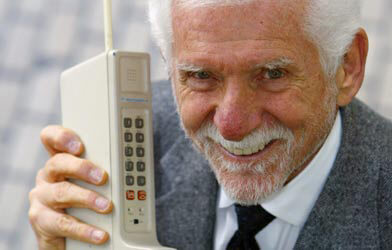
What do you see as the future of cell phones?
…I see the future of cell phones as being customized to people. People are really very different from each other. There’s no reason a single cell phone should be ideal for everyone in the world. I just think that’s a wrong concept. So the way the world is going to evolve, there are going to be niches…Why shouldn’t people in all other types of niches have phones designed for their purposes? And hopefully the world will evolve to that…
I think that the market is going to change, people are going to get smarter…I would tend to see the phone being much more customized to the individual and for each of the functions of the phone to be more optimum. What do I mean by that? I’m sitting here talking to you and I’m holding my phone up to my ear, and nothing could be more awkward, Christine. My arm is getting tired! Why am I doing that? Well, I could use a Bluetooth, but that’s also kind of awkward because then I have to pair the thing, and have to keep the battery charged.
So probably one day, and probably not in your lifetime either, you’re going to have a phone embedded under the skin behind your ear that has a really powerful computer in it, and that little device is going to be powered by your body because that’s what your body is. It’s an energy converter. You take food in and it converts that to energy and that’s how you move. So why not use a little bit of that to run the phone? And when I want to talk to you, I just tell my computer phone to call Christine and the phone says which Christine: the one in New York or the one in Toronto and I say Toronto, and there, I’m talking to you. That to me is an optimum phone. And similarly, all these other functions that we talked about; health and education; they’ll be devices that are optimized for those purposes.
You won’t have to have that universal phone that does all things for all people, but doesn’t do them very well. What you will have on your body somewhere, a little box that I call a communications server, not a cell phone. And this server connects you to the world: to the Internet, to these powerful medical computers. And then you have other devices on your body, depending on who you are and what your needs are, to serve you. And then that is what my vision of the future cell phone is.
…the future, what they’re now talking about, is the applications. What can you do to actually make people more comfortable, safer, educate them? These are all of the things the cell phone ought to be focused on. And now the cell phone is starting to move in that direction.
In the past, we’ve almost tried to turn people into engineers, to use these devices, and that’s wrong. Good technology ought to be transparent, intuitive; it really ought to be invisible. If you have technology that really serves you, you shouldn’t even know it’s there. It just ought to make your life better. One example is the phone I just described to you; the voice part of your server. You don’t even know it’s there when you’re not using it. And when you want to use it, you just say a few words. Ultimately, you’ll be able to just think and there you will be.
What would you say to people who say the mobile phone has contributed to isolating society?….
If a technology is disruptive, it is going to disrupt. We have to decide whether the disruption is positive or negative. Certainly there are some negative aspects to cell phones. You’ll never replace the importance of personal interaction. The fact is that if you and I had done this conversation by e-mail, there would have been much less communication then there is now. I can tell you have a great sense of humour and I never would have known that in an e-mail.
And face to face communication will never be replaced by the telephone. We’re still going to be doing those things. The only issue is are we going to be slaves to our cell phones, or are cell phones going to be our slaves? And that’s why we put an on/off switch on every cell phone so you don’t have to have it on every time.
And that’s why the decision is yours, not the rest of the world’s, on how you use it. We are still in very early stages. We’re still learning how to use these tools. Our children and our grandchildren will get better and better at it, and the tools will get better. Ultimately, I think the cell phones are going to be our slaves and overall, they’re going to make our lives better.
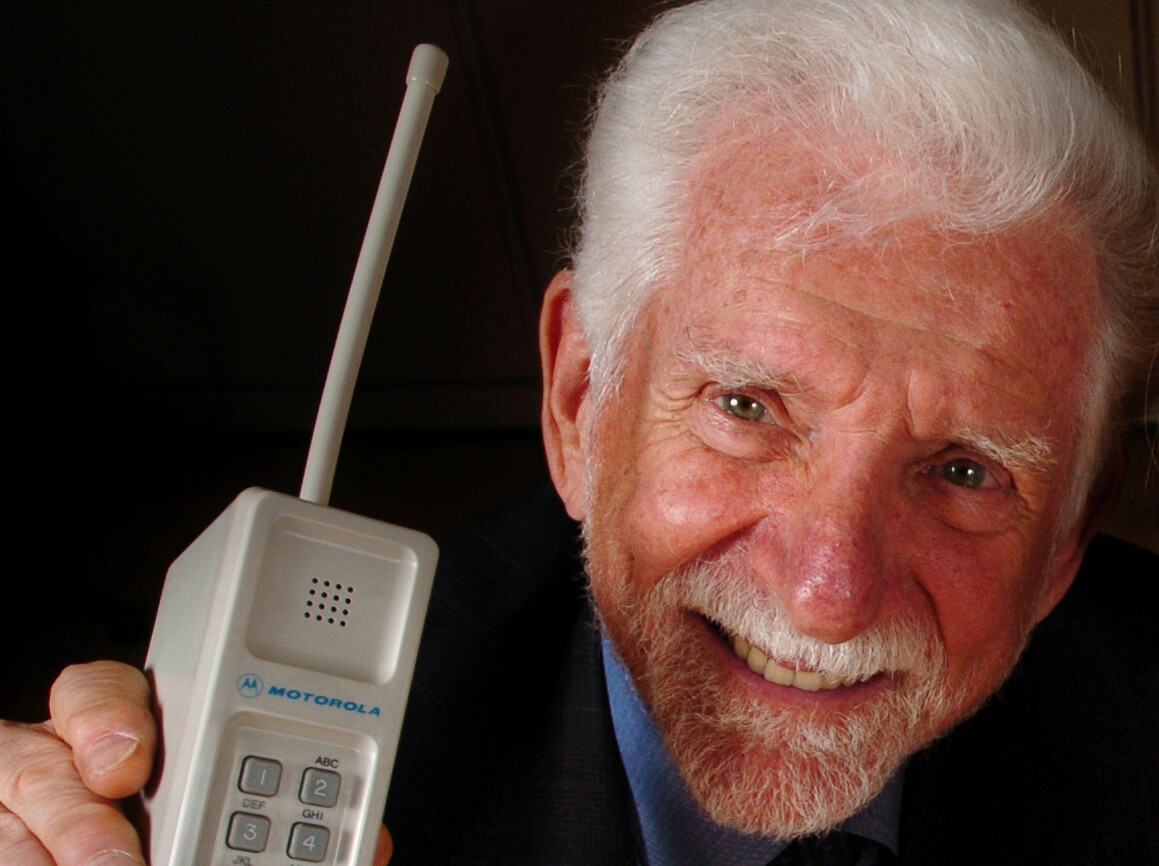
Since you made that first call, has everything ever wowed you in the same way?
Let me point out to you the way the world was in 1973: it’s hard to imagine, Christine, a world where there is no Internet. Nobody has a personal computer. The digital camera has not yet been invented. There are no large-scale integrated circuits. The most powerful computer doesn’t even come close to what we have in a cell phone. I’m talking about the most powerful computer in the world.
Could we ever have imagined that you would have a billion transistors in a cell phone? Not very likely. A transistor in 1973 sold for 10 or 15 cents, so you multiple that by a billion, and it was just unimaginable.
So from an engineering standpoint, that is what has wowed me. I still am entranced by the technology that goes into a cell phone. I’m not impressed by it from the standpoint of how it improves the lives of people because I think the potential is much bigger than the actuality.
You mentioned before having an iPhone. Do you still carry one of those?
No. That’s how I got to have so many Twitter followers. I was interviewed on a radio program in Washington and they asked me this same question and I said yes, I used to have an iPhone but I gave it to my grandson and now I’ve got an Android phone. And some Websites put a headline on their phone that said ‘Cell Phone Inventor dumps iPhone for Android.’ And within two days, I had 3,000 followers on Twitter.
If they do something new with the iPhone, I’ll get another one. [Ed. Note: at the time of this interview, the current iPhone model was the iPhone 5.] But at the moment, I think I have a pretty good idea of how an iPhone works.
I think Apple and Samsung and all these guys are going to have to come up with differentiating phones because the idea of all phones converging so they all look the same is not responsive to the needs of the public.
Final thoughts?
If all these things that I predict come true, we’re going to need 20-40 times more throughput over the next five years, and there is not that much spectrum. The emphasis on the carriers and of our government is well let’s take spectrum away from someone else and give it to the cellular carriers. That’s the wrong answer.
The right answer is now technology, and that technology exists, and the carriers have been very slow to adopt it they are going to have to adopt this new technology. Things like smart antennas and femtocells like I described. And things of that nature. So, we need a kind of revolution that has to happen with the cell phone infrastructure as well.
Today, Dr. Cooper told BBC that we are “still at the very beginning of the cell phone revolution.” True as this may be, we have certainly come a very long way since he made that first phone call 50 years ago.



